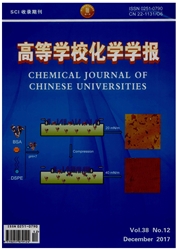

 中文摘要:
中文摘要:
采用药代动力学和代谢组学方法研究了咖啡因对异丙嗪镇静作用的影响.首先,采用航天警戒作业模拟系统和斯坦福睡眠量表,比较了异丙嗪单独给药和联合咖啡因给药对志愿者认知功能的影响;然后,通过Kinetica软件计算异丙嗪在咖啡因联用前后的药代动力学参数变化,并讨论可能的影响因素;最后,使用代谢组学方法对潜在生物标志物进行了鉴定.实验结果表明,咖啡因可以对抗异丙嗪的镇静作用,并改善志愿者的认知功能.这可能与联合给药后异丙嗪在体内代谢加快,多巴胺、去甲肾上腺素和肾上腺素相关通路发生变化有关.该方法为异丙嗪和咖啡因联合用药研究提供了新思路.
 英文摘要:
英文摘要:
Pharmacokinetic and metabolomic methods were employed to investigate the influence of caffeine on the sedative effects of promethazine. First, a space flight vigilance tasks simulation system and Standford sleepiness scale (SSS) were used to compare the effect of single administration of promethazine and combina- tion administration with caffeine on the cognitive function of volunteers. Then software named Kinetica was used to calculate some of the important pharmacokinetic parameters of promethazine before and after the combi- nation. And the possible influencing factors were discussed. Finally, a metabolomic method was applied to i- dentify the potential biomarkers between two groups. The results suggest that caffeine could confront the seda- tive effects of promethazine and so improve the decreased cognitive function, which might be induced by the accelerated metabolism of promethazine and the altered dopamine, norepinephrine and epinephrine related pathways. This study provides a new approach for the research of combination administration of promethazine and caffeine.
 同期刊论文项目
同期刊论文项目
 同项目期刊论文
同项目期刊论文
 Investigation into the hypoxia-dependent cytotoxicity of anticancer drugs under oxygen gradient in a
Investigation into the hypoxia-dependent cytotoxicity of anticancer drugs under oxygen gradient in a 期刊信息
期刊信息
